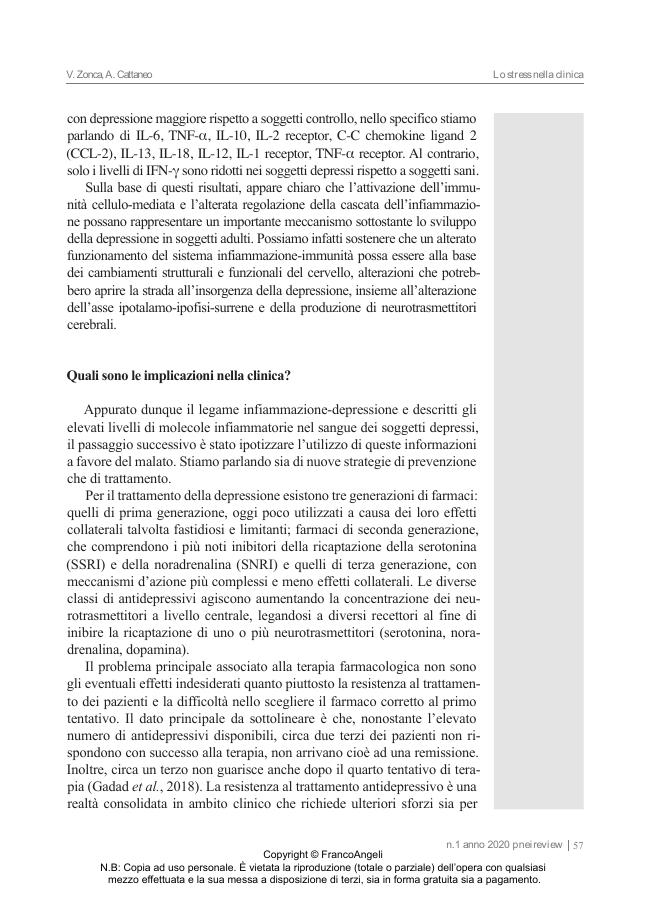Il ruolo dell'infiammazione nella depressione : dalla patogenesi alla risposta al trattamento
54-60 p.
Negli ultimi decenni la ricerca ha dimostrato un'aumentata attivazione del sistema immunitario nei pazienti affetti da schizofrenia, disturbo bipolare, depressione maggiore e ansia. Tuttavia, non è chiaro se queste patologie mostrino profili infiammatori distinti e se questi profili possano servire per sviluppare terapie mirate. L'efficacia degli agenti anti-infiammatori in caso di depressione rimane inconsistente e risulta evidente solo in alcune sottocategorie di pazienti: in particolare, i farmaci anti-infiammatori sembrano migliorare significativamente la sintomatologia depressiva in pazienti con elevati livelli di molecole infiammatorie nel plasma o nel siero. Dall'altro lato, l'efficacia di una terapia farmacologica sembra associarsi ad una riduzione dei livelli di citochine pro-infiammatorie.
Pertanto, come ha anche mostrato il gruppo di ricerca degli Autori e il progetto europeo GENDEP, particolari biomarcatori infiammatori potrebbero predire l'efficacia di un trattamento farmacologico, identificare se i pazienti rispondono o no al trattamento antidepressivo convenzionale e sviluppare terapie coadiuvanti. [Testo dell'editore].
In the last decades, research has demonstrated a higher activation of the immune system in patients affected by schizophrenia, bipolar disorder, major depression and anxiety. However, it is not clear whether these pathologies showed distinct inflammatory profiles and if these profiles could help to develop specially focused therapies. The efficacy of anti-inflammatory agents in the case of depression is inconsistent, and it shows evidence only in some subcategories of patients. In particular, anti-inflammatory drugs seem to significantly improve the depressive symptomatology in patients with high levels of plasma or serum inflammatory molecules. On the other hand, the efficacy of pharmacological therapies appears to correlate with a reduction in the level of inflammatory cytokines.
Therefore, as shown by the Authors' research group and by the GENDEP European project, specific inflammatory biomarkers could help to predict the efficacy of pharmacological therapies, identify whether patients will respond or not to the conventional treatment for depression and develop adjuvant therapies. [Publisher's text].
-
Articles from the same issue (available individually)
-
Information
ISSN: 2532-2826
DISCIPLINES
KEYWORDS
- Adattamento, Neuroplasticità, Stress, Carico allostatico, Network corticali intrinseci, Epigenetica
- Inflammation, Depression, Serotonin, Biomarkers, Psychiatry, Treatment- resistant depression



